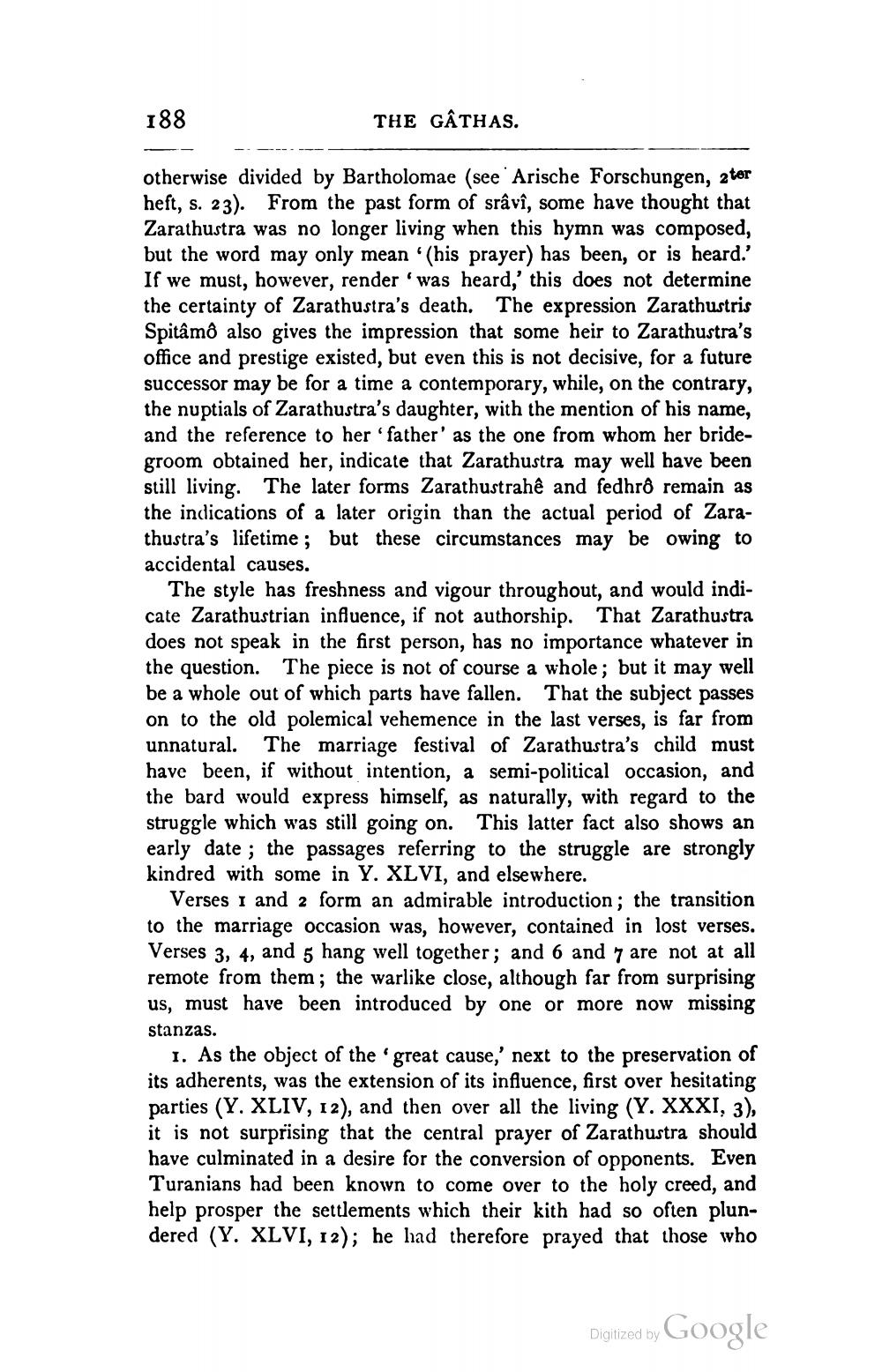________________
188
THE GÂTHAS.
otherwise divided by Bartholomae (see Arische Forschungen, 2 tør heft, s. 23). From the past form of srâvî, some have thought that Zarathustra was no longer living when this hymn was composed, but the word may only mean (his prayer) has been, or is heard.' If we must, however, render 'was heard,' this does not determine the certainty of Zarathustra's death. The expression Zarathustris Spitâmô also gives the impression that some heir to Zarathustra's office and prestige existed, but even this is not decisive, for a future successor may be for a time a contemporary, while, on the contrary, the nuptials of Zarathustra's daughter, with the mention of his name, and the reference to her 'father' as the one from whom her bridegroom obtained her, indicate that Zarathustra may well have been still living. The later forms Zarathustrahê and fedhrô remain as the indications of a later origin than the actual period of Zarathustra's lifetime; but these circumstances may be owing to accidental causes.
The style has freshness and vigour throughout, and would indicate Zarathustrian influence, if not authorship. That Zarathustra does not speak in the first person, has no importance whatever in the question. The piece is not of course a whole; but it may well be a whole out of which parts have fallen. That the subject passes on to the old polemical vehemence in the last verses, is far from unnatural. The marriage festival of Zarathustra's child must have been, if without intention, a semi-political occasion, and the bard would express himself, as naturally, with regard to the struggle which was still going on. This latter fact also shows an early date ; the passages referring to the struggle are strongly kindred with some in Y. XLVI, and elsewhere.
Verses 1 and 2 form an admirable introduction; the transition to the marriage occasion was, however, contained in lost verses. Verses 3, 4, and 5 hang well together; and 6 and 7 are not at all remote from them; the warlike close, although far from surprising us, must have been introduced by one or more now missing stanzas.
1. As the object of the great cause,' next to the preservation of its adherents, was the extension of its influence, first over hesitating parties (Y. XLIV, 12), and then over all the living (Y. XXXI, 3), it is not surprising that the central prayer of Zarathustra should have culminated in a desire for the conversion of opponents. Even Turanians had been known to come over to the holy creed, and help prosper the settlements which their kith had so often plundered (Y. XLVI, 12); he had therefore prayed that those who
Digitized by
Digitized by Google




